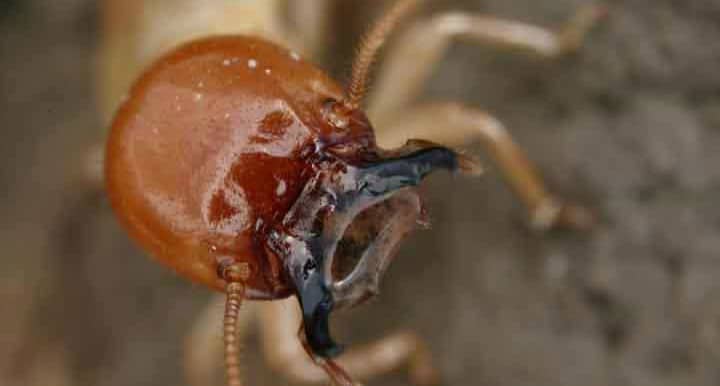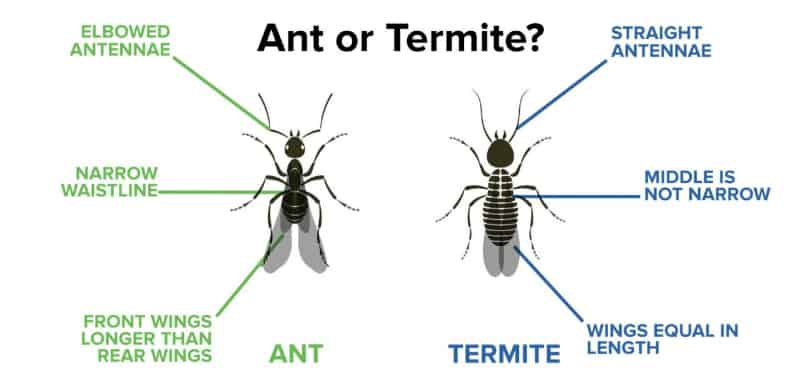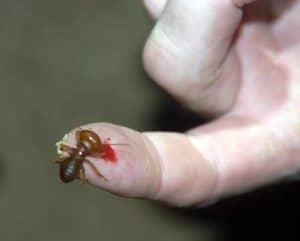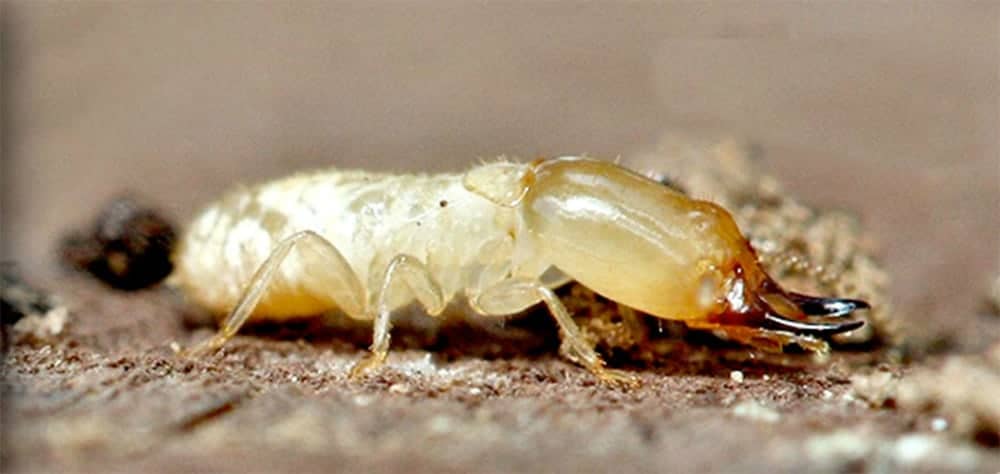It’s a fact that termites cause billions’ worth of damages to homes and businesses. The question is this: what do termites do to humans? Do they bite humans? As an invasive pest, homeowners have a fear of being attacked by termites when the infestation becomes worse. While termites don’t usually forage on humans, they can still bring possible health issues.
Do termites bite humans?

Termites eat wood, so they are unlikely to bite humans even if they are taunted to do so. However, the soldier termites could bite if they perceive the human to be a threat to the colony’s harborage.
Still, this is a very rare occurrence. There are no reports of humans being attacked by termites the way a colony of red ants may bite ceaselessly.
Termite species with an established caste has the so-called soldiers. These members have a larger mandible and a claw made for combat.
The soldier termites
Even if they are powerful as a colony, soldier termites don’t really do much harm to humans. They are usually 5 mm long and their bodies are too soft to cause severe wounds to the human skin.
If ever you got bitten, the bitten area will have a small, reddish mark that may also itch. The same reaction happens when you got bitten by an ant and other insects. This leads homeowners to think that termites bite them whenever there’s an infestation in their property.
How about household pets?
If the dog or cat is physically attacking the termite colony, the soldier mites may bite back for defense. Also, if the pet tries to eat or chew the termite harborage, there’s a chance that your furry friend will be bitten.
Unlike bees, termites don’t sting. You won’t even know if your pet got bitten. If your dog or cat happens to exhibit signs of allergy after a suspected termite bite, the reaction is due to a different insect. Termites don’t have venom.
Anyway, it’s always best to keep your pets away from the site of infestation, especially after the treatment procedure.
Termites or ants?

One common mistake that homeowners make is they confuse ant bites with termite bites. When an infestation is ongoing in a property, the owner who gets bitten by an ant may associate the itch and mark with termites; thus, the myth that termites will harm people.
How about the ‘white ants’? For the record, there are no white ants. Those semi-transparent insects you see foraging on the ground are actually Subterranean termites. They just got the nickname from their body color.
Ground termites may mingle with ants which may cause confusion about which insect actually bit. But if you don’t physically disturb their harborage, termites won’t bite. It’s best to ask the help of a professional exterminator if there’s a massive infestation in your property.
The risk of flying termites
Flying termites mean serious trouble – not for your body, but to the structure of your home. Flying termites, or alates as they are called in the termite caste, don’t bite. You can even squash them like fruit flies.
These swarmers are the queens of the infestation. Once they found a suitable place of harborage, they will discard their wings and mate with a reproductive termite. From there, the members of the colony will be born.
Termite swarmers
You’ll usually see termite swarmers during warm periods, usually during summer and spring months. Swarmers are rare in winter, which leads many homeowners to think that the termites are in hibernation. Take note, though, that termites don’t hibernate. They forage all year round, but they become low-key during winter.
To give you a better picture: termites eat the same amount of wood regardless of the season.
Overall, you don’t have to be afraid of swarmers, at least when it comes to your skin. Still, this is an obvious sign of a looming infestation. You should shield your home to prevent serious damages.
What a termite bite looks like?

A powerful termite bite will leave a red, swollen spot on your skin. It may take a few days for the spot to heal. Still, termites don’t utilize any form of venom.
What will cause the irritation and itchiness on the skin is the termite saliva. This is the same substance they use to create mud tubes out of the soil and to digest wood. So far, there are no recorded allergic reactions to termite saliva.
When a termite bites you, it’s just a little pinch with slight irritation. You’ll get worse bites from bed bugs, actually.
Take note that if your suspected termite bite persists for many days or even weeks, it’s not a termite bite. You probably got it from a different insect.
Known health risks associated with termites
Termites are usually harmless for healthy people. Still, some may experience the following complications. Most are related to an existing condition.
➡️ Allergies
The frass or wood pellets that termite produce as the by-product of their wood-eating habit may trigger allergies. The irritation is mostly because of wood dust that the person inhales. In this case, the ventilation and air conditioning unit of the property will contribute to the spread of the allergens.
An air purifier may help reduce the amount of the allergen, but as long as the termites are infesting, the health issue will never stop.
Take note that termites can also spread molds if they happen to forage on mold-riddled wood.
➡️ Asthma attacks
Those with asthma could experience recurring attacks when the termite infestation becomes widespread. The frass and wood dust are triggers, just like how it can result in allergic reactions.
Take note that during the treatment, the person with asthma should vacate the property. The area should be aerated well to ensure that the termiticides won’t cause any respiratory problems.
If possible, let the treatment subside for a few days before going back if you have a terrible case of asthma.
➡️ Fungal infection
For those with open wounds and ongoing infections, the dust and frass the termites produce may worsen a fungal infection.
If the termites persist after the initial treatment, their bodies may contain residues of the termiticides. Direct contact may lead to skin irritation.
The real threat is in the termiticides
It’s the termiticide – not the termites – that you should be worried about when it comes to direct harm to humans. All of the pesticides that the exterminator will use should be duly registered to the Environmental Protection Agency (EPA). Also, only licensed exterminators should handle the purchase, transport, and application of such pesticides.
In the 1970s, EPA has conducted hearings about the escalating environmental damage in the United States. This resulted in the phase-out of several termiticides in the commercial practice of pest control. Although some pesticides are still registered to the agency, only limited individuals are allowed to acquire a supply.
Termiticides will directly harm humans.
Prolonged exposure to the fumes or chemicals can lead to irritation, seizures, difficulty in breathing, and hospitalization. For massive infestations, exterminators will advise the occupants to vacate the place.
If fumigation is used, the whole property will be sealed inside a tent to keep the fumes intact. The occupants must remove food items and sensitive appliances before the treatment. Never eat any food that’s left inside a fumigated house. Even if it’s inside the fridge, the termiticide would have inevitably attached to it.
Frequently Asked Questions
Q1: Do termites make you itch?
A: If in a very rare case that you’ve got bitten by a soldier termite, the bitten area will swell and itch. It’s the usual reaction of the skin to most insect bites and it’s easy to confuse it with other insect pests.
Q2: Are termites harmful to humans?
A: Relatively, not. The only physical harm that termites can cause humans is by weakening the structure on which they live. Their bites, on the other hand, are usually non-toxic.
Q3: Can termites make you sick?
A: If you have a lingering respiratory problem or allergy, exposure to frass and mold that termites may spread can make you sick. Still, the sickness isn’t directly caused by the mites. They are mere triggers.
Q4: What happens if a termite bites you?
A: You’ll get a tiny pinch and a mild irritation. Other than that, the bite will go away in a day or two. If the suspected termite bite became more irritated and lasts for days, it’s surely a bite from a different insect.
Q5: Is termite poop dangerous?
A: Termite poop or droppings is also called frass. It’s not known to be toxic, but the dust may lead to respiratory irritation for those with lingering conditions.
Final words
What do termites do to humans? They may bite, but the rash is a mild pinch that wouldn’t be a big concern. What you really have to fret about is the structural damage it can do to your home. To prevent any bites and further damage to your home, you should seek termite treatment upon the discovery of the infestation.

